Episodes
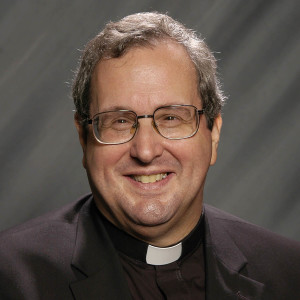
Monday Nov 25, 2019
Episode 087 - Fr. Robert Spitzer and Intellectual Culture (rerun)
Monday Nov 25, 2019
Monday Nov 25, 2019
Unfortunately, this week Paul got deathly ill and that prevented us from recording the promised "end of the world" episode. Here instead is a re-edited version of Bill's interview with Fr. Robert Spitzer from August 2018 (originally run as Episode 20). One of our earliest interviews and still, amid all the great guests who have given time to this little podcast, one of the best.
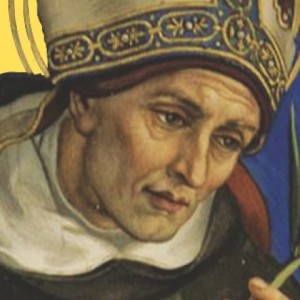
Monday Nov 18, 2019
Episode 086 - Indianapolis Gold Mass
Monday Nov 18, 2019
Monday Nov 18, 2019
Today's episode is a rundown of the Indianapolis Gold Mass, followed by a short selection of readings from Scripture and a bit about Albert the Great specifically, with a scrap of meditation on the vocation of a scientist.
- Gold Masses for those in the natural sciences were celebrated in a dozen cities on Nov. 15, the feast day of St. Albert the Great, who is the patron saint of natural scientists. One of those Masses, as described by TSSM co-host Dr. Paul Giesting, took place in Saints Peter and Paul Cathedral in the Archdiocese of Indianapolis.
- The Society of Catholic Scientists is the pre-eminent sponsor/supporter of these Gold Masses as part of an initiative established relatively recently. The Society’s website contains a page where the most comprehensive listing of planned Gold Masses is compiled.
- What is a Gold Mass? The SCS provides this information.
- Here are details of the life of St. Albert the Great.
- The Criterion, newspaper of the Indianapolis Archdiocese, is expected to publish an article about the Nov. 15 Gold Mass in early December.

Monday Nov 11, 2019
Monday Nov 11, 2019
- Today's episode is getting recorded in a tight slot on Sunday night. Bill is out of town at a workshop on self-publishing and Paul has spent an awful lot of time over the last three days peering into the engine bay of a 1987 Jeep Wrangler and screwing and unscrewing things.
- Robert Barron and Brandon Vogt pulled excerpts from the Joe Rogen - Dawkins interview and spent two weeks rebutting them. That's one point of departure for today's episode. The other, of course, is that the feast of Albert the Great is this coming Friday, meaning Gold Mass season is at its frenzied (?) peak, and Albert the Great is one of the cast of figures who put together the great medieval synthesis of Catholic Christian thought with Aristotelian philosophy and science. I myself just finished a curious old book called Roman Science by William Stahl, and that will probably also be in the back of my head as I riff a bit. (Yes, for tonight I'm writing the liner notes first and attempting to monologue to fit them.)
- Bill has an ebook, hence the self-publishing drive: When Headlines Hurt, Do We Have a Prayer?
- Get up to date listings on Gold Mass locations and times!

Monday Nov 04, 2019
Episode 084 - Gold Masses, Politics As Religion, Jordan Peterson
Monday Nov 04, 2019
Monday Nov 04, 2019
- This week Bill prods Paul along as he recovers from a massive proposal hangover. This week's episode is the end of a much longer conversation that may or may not otherwise remain on the cutting room floor about Jordan Peterson and other topics as far afield as Homestar Runner.
- We run down the list of Gold Masses that have been publicly announced to take place this coming month--featuring such highlights as a Mass celebrated by the Bishop of Bismarck, ND and a talk at Benedictine University in Lisle, IL on "The Mystery of Faith: from the Gold Mass to Gravity Waves."
- From there, we segue to discussing how in the contemporary world people try to fill to gaping hole left by religion with politics even more than science, and we finish with Bill's comments on one of Jordan Peterson's messages in an interview with Patrick Coffin on the essential role that living our own lives well plays in changing the world.
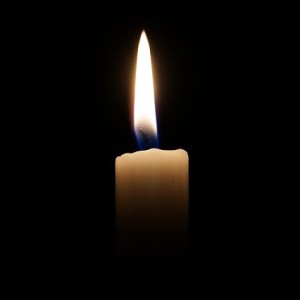
Friday Nov 01, 2019
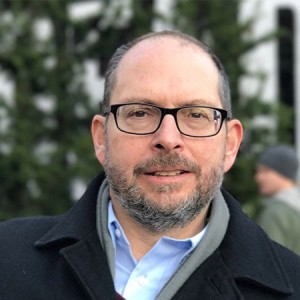
Monday Oct 07, 2019
Episode 080 - The Culture of "Science vs. Religion" with Jonathan Lunine
Monday Oct 07, 2019
Monday Oct 07, 2019
- Dr. Jonathan Lunine is the David C. Duncan Professor in the Physical Science and chair of the Department of Astronomy at Cornell University. He is also the vice president and a co-founder of the Society of Catholic Scientists.
- In this “part 2” of our interview, Dr. Lunine cited the book Secularity and Science by Elaine Ecklund (mentioned and linked in episode 79) and co-authors. The perceived conflict between faith and science is largely a Western phenomenon, according to Ecklund’s research, and it’s especially visible in the United States. Elsewhere, cultural education more fully incorporates an education about religion, so these people are more comfortable with the integration of the two.
- He said Catholic news services and The Christian Science Monitor are among the organizations where journalists are more likely interested in the combination of topics in science and religion.

Monday Sep 30, 2019
Episode 079 - Conversion and Witness with Jonathan Lunine
Monday Sep 30, 2019
Monday Sep 30, 2019
- Dr. Jonathan Lunine is the David C. Duncan Professor in the Physical Science and chair of the Department of Astronomy at Cornell University. He is also the vice president and a co-founder of the Society of Catholic Scientists.
- Here is information about the Vatican Observatory. It was one of the starting points for Lunine’s exploration of the compatibility between science and the Catholic faith.
- He met Stephen Barr in 2014, and this led to their discussions about establishing the Society of Catholic Scientists. Here is a talk given by Barr at the University of Chicago.
- Here is a talk by Lunine about Georges Lemaitre, a Catholic priest recognized as an originator of the Big Bang theory. In our conversation, Lunine described a presentation on Lemaitre that he gave at Cornell as a kind of “coming-out party” for him as a Catholic convert with his own story to tell. He has addressed Catholic students with the advice to share one’s faith story but to be judicious, following the practice of St. Paul, who adapted his messages to his audiences. A recommendation for discussions of faith: “There’s a time and a place for everything.”
- Lunine mentioned Elaine Ecklund, who has studied what scientists think about the American culture’s understanding that science and religion are incompatible. Harvard physicist Lisa Randall, who has said belief in God is incompatible with science, is an example of the resistance to faith that many scientists encounter in academia, Lunine said. Our culture gives much credibility to scientists, who owe it to their audiences to be clear about when they are speaking as individuals rather than scholarly experts. Lunine also mentioned the Thomistic Institute, which has a chapter on the Cornell campus founded by a graduate student.
- Part of the difficulty in the dialogue between science and religion is a popular but erroneous view that the Bible was intended to be a book of science. Here is a discussion of St. Augustine’s examination of this claim. Another challenge, Lunine said, is that our children generally grow up without a substantive education in religion.
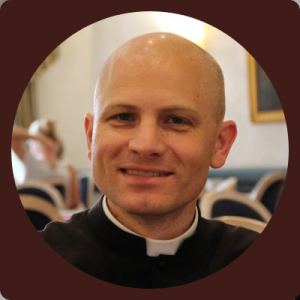
Monday Sep 23, 2019
Episode 078 - Fr. John Hollowell
Monday Sep 23, 2019
Monday Sep 23, 2019
- Father John Hollowell is a priest of the Archdiocese of Indianapolis. He is well-known for his blog, “On This Rock.” His pastoral duties include parish leadership and chaplain roles at DePauw University and the Putnamville Correctional Faciltiy.
- Fr. Hollowell spoke with Paul Giesting about the number of priests throughout history who have also been active as scientists. Here is one list of priest-scientists provided by National Catholic Register.
- Pope John Paul II created a commission to review the Galileo Affair, and this resulted in documents officially apologizing for the Catholic Church’s historic, and hyperbolized dispute against Galileo’s statements.
- Here is a link to the book that was discussed: Steven Pinker’s The Blank Slate: The Modern Denial of Human Nature.
- Fr. Hollowell and Paul discussed the long-running football rivalry between DePauw University and Wabash College.
- See Fr. Hollowell online at Facebook and YouTube. And also see his interview with well-known digital Catholic voice Brandon Vogt.
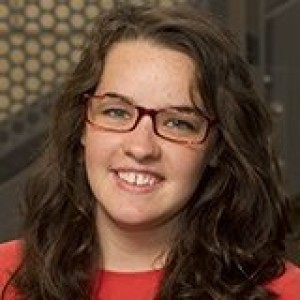
Monday Sep 09, 2019
Episode 076 - Megan Levis, part 2
Monday Sep 09, 2019
Monday Sep 09, 2019
- This is the second half of TSSM’s interview with Megan Levis. We talked at greater length about this graduate student’s research and its good fit with values-informed thought, with the Society of Catholic Scientists, and even literature. The Society held its third annual conference at the University of Notre Dame a few months ago.
- In Megan’s presentation to the scientists at the SCS annual conference, she posed the question: How do you distinguish and exercise ethical responsibilities when something like brain organoids are “made in the image and likeness of man rather than the image and likeness of God.” Organoids are multicellular systems built from brain tissue. Are they just cell cultures or something so akin to the human being—particularly when they are brain organoids—that ethical duties arise out of respect for human dignity? This is a relatively new field where the scientific understanding and moral consideration still must develop in tandem, she explained. A New York Times article touched on some of the questions being raised.
- Megan’s own main research project as part of her graduate studies at Notre Dame deals with microfluidics. They are devices, a kind of miniature bio-reactor, in which researchers can grow cells and small organs. Her goal is to make it easier and less expensive to make microfluidics that can be used in future research. Here are resources on microfluidics from the journal Nature.
- Her collaborations in this area came about from her meeting with a leader in microfluidics technology, Dr. Fernando Ontiveros, while they were both attending a previous SCS conference. His team is exploring new applications for microfluidics, such as the growing of organoids.
- At what point should moral concerns tied to the dignity of the human person “kick in” when dealing with the brain and brain organoids? Where do you as a person reside in the body? The existence of a capacity for rational thought is a conventional scientific benchmark for the existence of personhood, Megan said. There are many theories of the complex brain-mind-body connection with personhood. The human person is a complex creature, not reducible to the brain or body alone. Here’s an exploration of some insights from National Geographic.
- There is a real role for literature in helping us to explore the many questions that combine operational questions of engineering and more abstract, integrated thinking about persons, Megan says. She recommends renowned author Walker Percy, who explored such subjects in Lost in the Cosmos: The Last Self-Help Book. He comments that being a human is inevitably an uncomfortable process involving tensions within our nature. Our culture tends to look to science for answers to the big questions of human nature, but literature and art are pathways to answers too; literature allows us to think without predispositions and suppositions, to discover truths about ourselves and the world that transcend scientifically measurable parts. As Megan put it, the ability to wonder about the world is a gift that is transmitted sometimes through engineering and sometimes through literature and art.
- Megan has been able to work with Ontiveros while he has done research and prepared journal articles at Notre Dame. With the support of mentors and advisors, she has embraced opportunities at Notre Dame and elsewhere to spend time thinking about faith and science in relationship. She attended a conference with like-minded graduate students interested in these connections. She has appreciated the insights of SCS president Stephen Barr and microbiologist Fr. Nicanor Austriaco, OP, a speaker at this year’s SCS conference. Barr is the author of Modern Physics and Ancient Faith. Austriaco has recorded a podcast available through the Thomistic Institute titled The Science and Practice of Christian Prayer.
- What does Megan recommend for graduate students and others who want to advance in their bioengineering studies while staying informed and mindful about the faith-related aspects? She highlights the power of community, building friendships and conversations over time with a diverse range of people on similar journeys, including philosophy and science. One can attend relevant lectures and conferences, such as those sponsored by Notre Dame’s De Nicola Center for Ethics and Culture. She recommends the resources of the Collegium Institute. Building and updating such mindfulness is a long-term process requiring persistence, she adds.
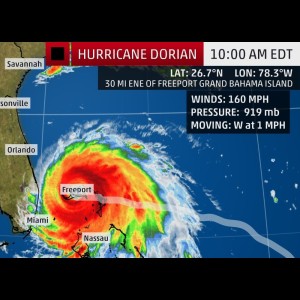
Thursday Sep 05, 2019
Atmospheric Disturbances
Thursday Sep 05, 2019
Thursday Sep 05, 2019
[Image from weather.com, https://weather.com/storms/hurricane/news/2019-09-02-hurricane-dorian-labor-day-bahamas-florida-georgia-carolinas]
This week, Hurricane Dorian crossed the Bahamas. On Monday, while I was writing this, it was still there. It was a Category 5 hurricane on the Saffir-Simpson scale, which meant that it had winds somewhere within the storm blowing at over 157 miles per hour for at least a minute...i.e., sustained winds, not short-lived wind gusts. The wind speeds are comparable to an Enhanced Fujita (EF)-4 tornado, except that this storm is going on for days and is spread out over a much, much larger area than any tornado.
The winds are driven by an intense pressure differential between the eye of the storm and the surrounding atmosphere. At sea level, atmospheric pressure averages to somewhere just above 1 bar.
(1 bar = 100,000 Pascals, Pascals being the natural SI / metric unit of pressure. A fluid with a pressure of 1 Pascal, acting on one side of an object 1 kilogram in mass and 1 square meter in size, would accelerate it at 1 meter per second, per second into a pure vacuum. One kilogram is accelerated 1 m/sec/sec by 1 Newton of force, and 1 Pascal is 1 Newton spread over 1 square meter. You physicists, think through that explanation and contact me with corrections, but I believe that's correct.)
The Weather Channel graphic above notes that Dorian's central pressure was 919 mb, or 0.919 bar. That's a difference of almost 10% from normal pressure, and that's a huge pressure gradient, which is what accelerates the air to these howling velocities.
This massive difference in pressure also sucks the water of the ocean upward into the core of the storm, which is at least part of the phenomenon of storm surge. The water is pushed into the gap by the ambient air pressure outside the storm.
What causes this region of strongly lowered air pressure at the core of the storm in the first place? This is where my meteorological knowledge ends, although rising of warm air near the warm surface of the ocean is a crucial part.
I don't know what will be left standing in the northern Bahamas, and at this point we don't know how much of the U.S. east coast this monster will hammer, and how hard. It is nearly stuck in place at the moment.

